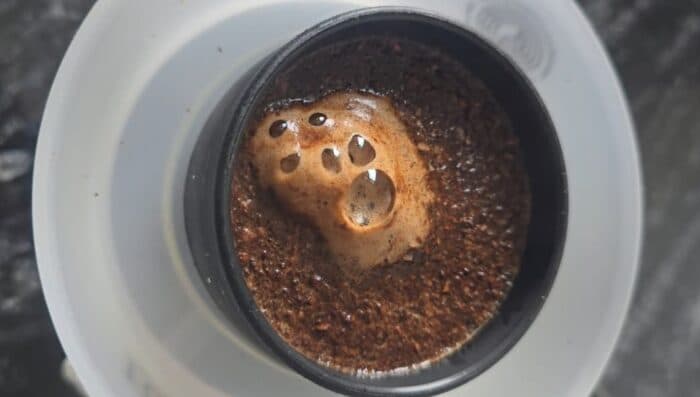- Brazil forecasts 65 million bags of coffee in 2025/2026. Robusta expands while arabica falls. Revenue hits all-time high amid supply bottlenecks and global price surges.
The “Coffee Annual Report – Brazil 2025/2026,” published by the U.S. Department of Agriculture on May 15, 2025, indicates that Brazil, the world’s largest coffee producer, is set for a season with an estimated 65 million 60-kg bags of green coffee. This figure reflects relative stability in overall output compared to the previous year, but it conceals sharp contrasts between arabica and robusta performance. Arabica is expected to decline by 6.4% due to heat stress, drought, and its biennial cycle, while robusta continues to expand rapidly—up 15%—driven by improved weather and greater investment in irrigation and mechanization.
Key arabica-producing states like Minas Gerais and São Paulo experienced severe climatic stress during flowering. Minas Gerais endured over 200 days without rain, reducing blossom intensity and bean density, while São Paulo also reported dry weather at a critical phase. In contrast, states like Espírito Santo and Bahia benefited from more regular rainfall and improved irrigation systems, allowing them to sustain arabica yields and significantly boost robusta production. Espírito Santo alone now produces about 70% of Brazil’s robusta output, and Bahia is expected to increase its volume by 11%. Meanwhile, Rondônia reported delays in cherry maturation, but quality remains stable due to late but intense rains.
Despite the overall production rebound, coffee exports are forecast to decline by 5.6% to 41.75 million bags in the upcoming marketing year, affected by reduced availability, port congestion, and the return of strong competition from Vietnam and Indonesia. However, Brazil is capitalizing on favorable tariff structures, particularly in the United States, where Brazilian robusta enjoys a much lower duty than imports from some Asian countries. This opens new opportunities for robusta exports even as arabica shipments face mounting pressure.
Coffee prices have reached record highs in Brazil. In February 2025, arabica was priced at BRL 2,769.45 per 60-kg bag, while robusta reached BRL 2,102.12 in January. These price surges, driven by global supply disruptions and strong demand, have pushed the total value of Brazil’s coffee sector to BRL 126.7 billion—up 57% from last year and the highest in history. Arabica represents 71% of this revenue, while robusta contributes 29%.
Domestic coffee consumption in Brazil reached 22.28 million bags during the current season, showing a slight increase. However, per capita consumption declined to 5.01 kg due to population growth. The sharp rise in roasted coffee prices prompted some consumers to switch to instant coffee, which grew by 6% in the first quarter of 2025.
Soluble coffee exports also performed well. Spray-dried coffee accounted for 71.5% of the category, while freeze-dried shipments rose 19%. Premium coffee exports grew by 31%, particularly to the United States, Germany, Belgium, the Netherlands, and Japan.
Nonetheless, port infrastructure remains a major bottleneck. It is estimated that around 638,000 bags could not be exported due to port delays, resulting in losses exceeding BRL 1.5 billion. Brazil’s ports suffer from insufficient berth space and cannot accommodate large vessels, forcing the government to invest nearly USD 800 million in infrastructure upgrades in 2025.
To support growers, the government maintained minimum guaranteed prices at BRL 662.04 for arabica and BRL 498.79 for robusta. In addition, the National Coffee Fund (FUNCAFE) allocated BRL 6.88 billion to finance production, marketing, and weather damage recovery. Starting in 2026, Brazil will implement a broad tax reform that simplifies VAT and exempts basic food items, including coffee.
On the sustainability front, Brazil continues to strengthen its environmental and social compliance. According to the report, 97% of producers follow ESG-aligned practices, and the national digital traceability platform “Cafés do Brasil” is helping exporters meet the requirements of new EU regulations on deforestation-free supply chains.
While arabica faces a difficult season due to climatic instability, robusta is emerging as a strategic pillar for Brazil’s coffee future. With record-breaking revenues, growing export diversification, and strengthened sustainability credentials, Brazil remains a global coffee powerhouse—though continued improvements in infrastructure and support for smallholders will be critical to sustaining this momentum.


